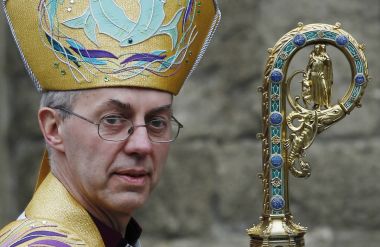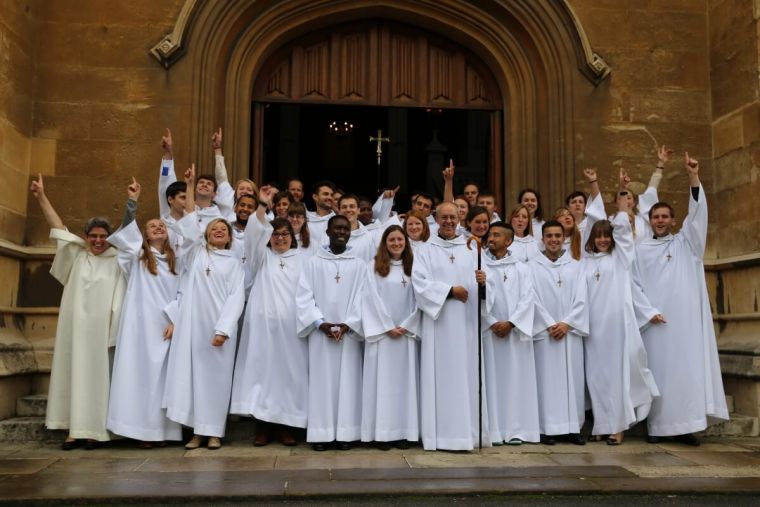Archbishop offers welcome to refugees at Lambeth Palace

The Archbishop of Canterbury is the latest Church leader to offer a home to a refugee family from Syria.
Archbishop Justin Welby is to invite refugees to occupy an empty four-bed cottage at Lambeth Palace, his historic home and office opposite the Palace of Westminster in the heart of London. Parts of Lambeth Palace date from the 15th century.
Archbishop Welby, who has met privately with Prime Minister David Cameron to discuss the issue, has been considering taking in refugees for some time. The announcement this week came days after Pope Francis revealed that two refugee families have now arrived at the Vatican and as the first of 20,000 Syrian refugees begin their journey to the UK.
A spokesman said: "As the archbishop has said, Jesus was a refugee, and there are refugees here who are desperate for sanctuary from war-torn places and the archbishop is completely torn about their situation and wants to make a difference."
Just 214 Syrian refugees have so far been granted a home in the UK since January 2014, and 5,000 Syrians granted asylum in the past four years.
The announcement came as Archbishop Welby launched his new monastic community at a service at Lambeth Palace, achieving his dream of filling the many empty rooms at Lambeth with young Christians.

The 36 women and men aged between 20 and 35 and from countries as diverse as Kenya, the US and Australia, will spend a year praying, studying and working with deprived local communities as part of the Community of St Anselm. Twenty of them are non-residential and will be part-time monks while continuing in their "day jobs" in professions such as law and media. All of them will live the Rule of Life, based on the fifth century Rule of St Benedict.
Peter Angelica, 23, a financial analyst from New York, said the decision to join "was not an easy task, even after much thought, prayer and contemplation." He added: "Through God's love, and the support of my family, friends and those I worked with, I have come to realise the importance of this decision for me and for others."
In his sermon Archbishop Welby said: "Religious communities are not new, and they are not rare. They are ancient and current reflections of the love of God seen in the Trinity, in which people risk everything to seek to emulate that love, a love which is so great that it overflows infinitely into the world from the Father in the life, death, resurrection and ascension of Jesus, and in the sending of the Holy Spirit. Changed by the love which finds and directs us, changed by that grace, we too are to be sources of love and healing."
He said he had received an email from the Abbot of a Benedictine Community, which described the Community of St Anselm as "this amazingly prophetic community which is about to be born."
Archbishop Welby said it was prophetic it is because it challenged both the church and the world with the grace of God, and does so from Lambeth Palace, which through its history been a place of privilege, of power and even oppression.











